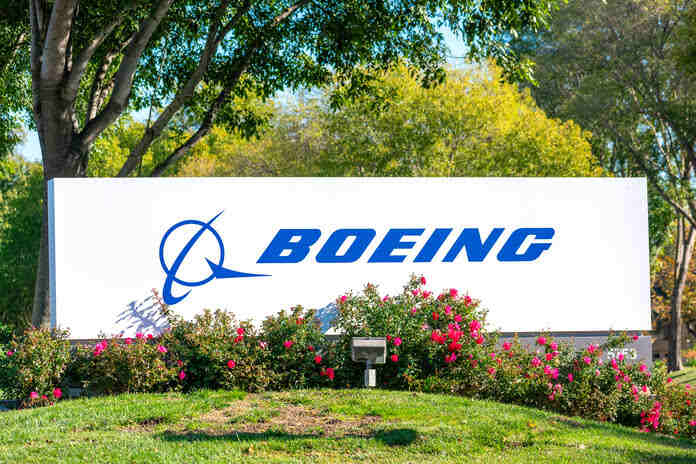Boeing (NYSE:BA), a leader in the aerospace industry, faces ongoing production delays following a recent strike by over 30,000 factory workers that lasted nearly two months. The disruption impacts Boeing’s manufacturing timelines, pushing back production schedules for some of its most in-demand aircraft, including the 737 Max and 777 models. While operations are beginning to resume, the company expects it will take several weeks to fully restart production. This Boeing production delay is already causing ripple effects across the airline industry, as carriers continue to wait for their orders.
Delays in Production and Certification
The strike halted work at Boeing’s factories in Washington and Oregon, with machinists represented by the International Association of Machinists and Aerospace Workers returning to work after approving a new contract. Although the contract includes a 38% pay increase over four years, workers did not secure the restoration of their pensions, which had been frozen. With production on the 737 Max, 777, and 767 cargo planes shut down during the strike, Boeing has substantial work ahead to bring operations back on track.
The 737 Max remains one of Boeing’s most crucial models, especially as international carriers like Ryanair (NASDAQ:RYAAY) anticipate receiving the latest Max 10 variant by 2027. However, certification for this model has been delayed, adding further complications to Boeing’s timeline. The CEO of American Airlines (NASDAQ:AAL), Robert Isom, commented on the production and certification issues, saying he prefers that Boeing focus on delivering “one quality aircraft off the line” before accelerating production.
Implications for Airline Customers
The Boeing production delay has hit airline customers hard, especially those reliant on timely deliveries of the 737 Max. For instance, Ryanair has expressed concern over the wait time for its Max 10 jets, which Boeing initially anticipated delivering sooner. Other major carriers, including American Airlines, have adopted a cautious outlook on delivery dates, recognizing the challenges Boeing faces in managing production schedules.
The delay has also strained Boeing’s relationships with these airlines, who are growing impatient. Airlines rely on Boeing’s timely deliveries to support fleet expansions and replace older models, particularly in high-demand travel seasons. This production backlog can limit an airline’s ability to meet increasing passenger demand, potentially affecting revenue.
Financial Impact of the Strike on Boeing
The financial consequences of the strike are substantial. Boeing earns cash flow from the delivery of completed planes, and any delay in production directly reduces its revenue. While Boeing managed to deliver 14 planes in October—mostly units completed before the strike began—the backlog and subsequent disruptions have affected its earnings outlook.
Boeing’s October orders included commitments for 63 planes, with 40 of those orders for 737 Max models from leasing company Avia Solutions Group. However, fulfilling these orders promptly will be challenging, given that production is still in the early stages of resuming.
Challenges and Long-Term Outlook
Boeing’s ability to rebound from these production setbacks will depend on how quickly it can ramp up operations while maintaining quality standards. Given that Boeing has resumed building the 787 Dreamliner in South Carolina with nonunion workers, the production of this model remains unaffected. However, the delay in Washington and Oregon has impacted Boeing’s other passenger jets, which are crucial to its profitability and reputation.
Additionally, Boeing faces regulatory challenges. The 737 Max 10 and the larger variants of the 777 still require U.S. Federal Aviation Administration (FAA) certification. These regulatory hurdles add another layer of complexity, as the FAA conducts thorough assessments to ensure each model meets stringent safety requirements. Delays in certification could lead to further setbacks, particularly if regulators demand modifications before granting approval.
The Path Forward for Boeing
Boeing’s primary focus will be on stabilizing its production processes while gradually increasing output. As the airline industry rebounds post-pandemic, demand for new planes is surging, giving Boeing an opportunity to meet the market’s needs. However, managing this demand alongside the existing backlog and certification requirements presents a delicate balancing act.
The company’s relationships with airline customers, already strained by prior delays, could be strengthened if Boeing demonstrates a renewed commitment to timely and quality-focused delivery. For investors, Boeing’s stock may experience fluctuations as it navigates this complex recovery phase. However, Boeing’s long-standing industry presence and the resurgence in air travel could provide a path to steady growth if production stabilizes in the coming quarters.
In summary, the Boeing production delay caused by the recent strike and regulatory hurdles reflects the challenges faced by aerospace manufacturers in a recovering market. While the path to resuming normal operations may be gradual, Boeing’s strategic focus on quality and operational efficiency will be crucial as it works to rebuild confidence and meet the high demand from airline customers.
Featured Image: Megapixl









